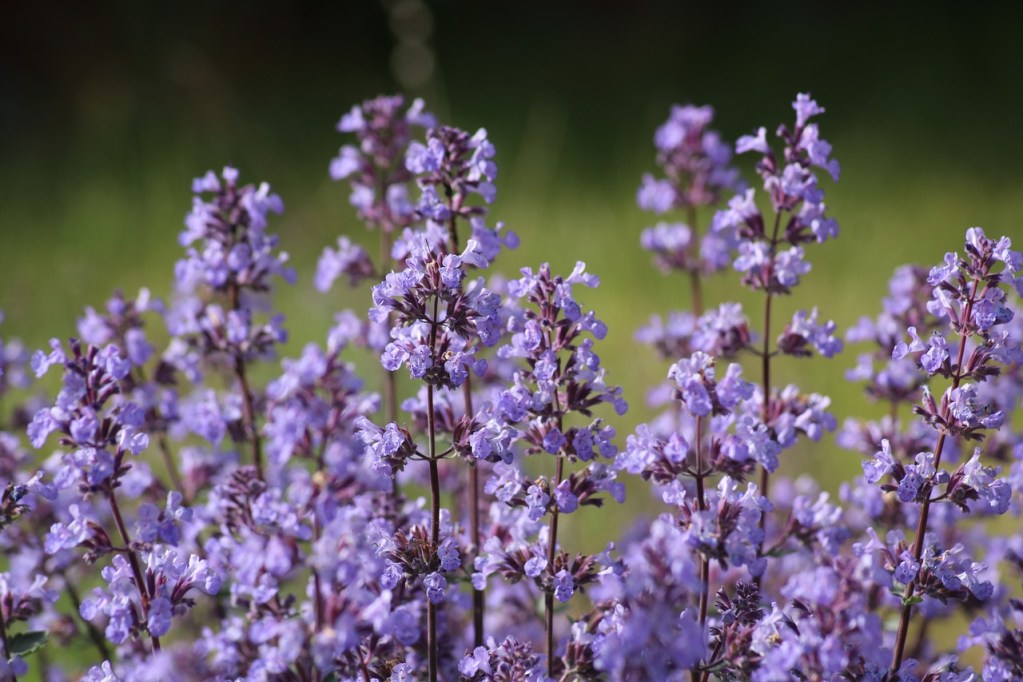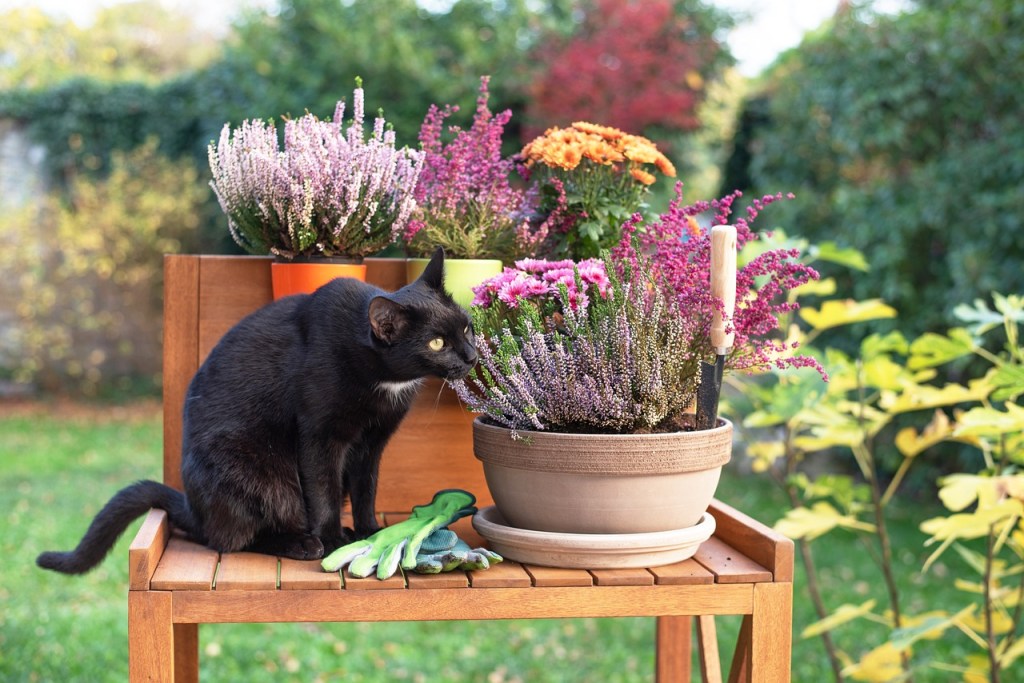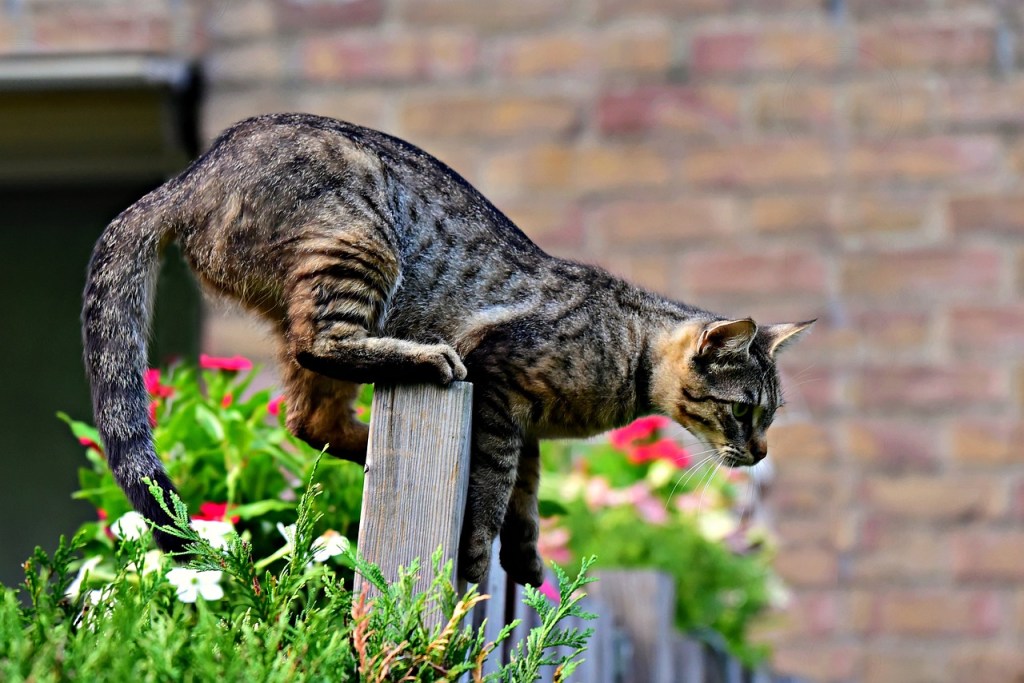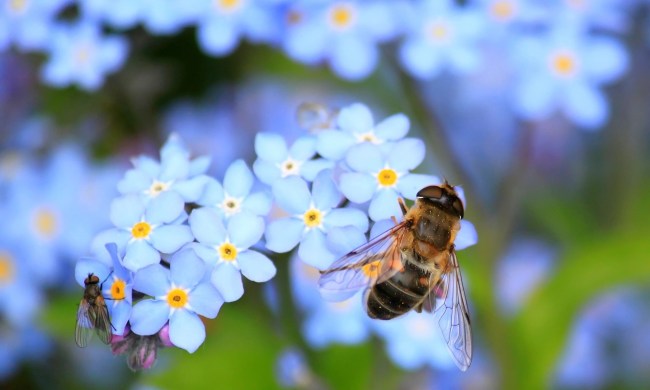Nepeta, which includes both catmint and catnip, is an easy-to-grow herb with lovely flowers and soothing properties. However, people aren’t the only ones fond of this plant! Cats famously love nepeta — that’s why its two common names both include the word "cat." However, felines can cause quite a bit of damage to your nepeta plants. If you aren’t looking to share your herbs with the local kitties, then you’ll need to know how to keep cats out of your yard and away from your nepeta.

How and why do cats damage nepeta?
The leaves and flowers of nepeta release a soothing scent that cats just can’t get enough of. This scent is stronger in catnip than catmint, but both plants can become the target of your local, free-roaming cat population. The leaves can either soothe or invigorate felines, so you could see visiting cats lounging peacefully in the sun or tearing through your garden with reckless abandon.
The main signs of damage from cats are chewed leaves and crushed plants. Cats will chew on nepeta, but they will also roll on young plants or low-hanging branches to release the scent. Unless you have a large cat population, your adult nepeta plant should be fine. However, young nepeta plants can be damaged more easily.

Keeping cats away from nepeta plants
Here's how to protect your nepeta plants:
Step 1: Bring young nepeta plants indoors.
Step 2: Place a wire or mesh cage around your plants.
Cats are very dexterous, so most plant covers don’t stop them entirely. However, a wire or mesh cage that they can’t claw apart and that has holes too small for a paw to fit through will keep cats at bay.
Step 3: Use a pet-safe cat deterrent spray.
Many sprays contain capsaicin or citrus, which are both irritating for cats and safe for plants. It can be dangerous if a cat ingests too much of either, but cats are unlikely to eat enough to harm them. As a safer alternative, use bitter sprays intended to train pets.

Keeping cats out of your yard
If keeping cats away from your nepeta isn't enough, here's how to keep cats out of your yard:
Step 1: Install a tall, smooth, rounded fence.
Cats are excellent at climbing and jumping, so most fences won’t keep them out. Cat-proof fences often rely on overhangs, which keep cats from escaping your yard, but don’t keep them out.
Step 2: Keep climbable objects away from the fence.
Step 3: Avoid planting your nepeta (or other appealing plants, like cat grass), near the fence.
Step 4: Spray a vinegar mixture where the cats usually enter your yard.
The smell of vinegar is unappealing to cats. It dries out plants, so don’t spray it directly on your nepeta.
Now that you know how to keep cats out of your yard and away from your nepeta, your catmint or catnip plants will be much safer. You can enjoy your nepeta as much as you like, without worrying about finding it crushed or chewed up.




